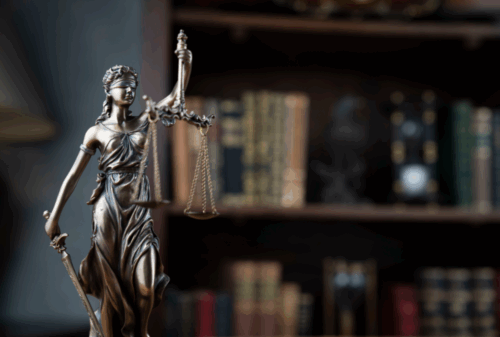Harlene Labrum | June 12, 2025 | Car Accidents
How Social Media Can Hurt Your Nashville Car Accident Case

A serious Nashville car accident case can turn your life upside down in an instant. Suddenly, you’re dealing with medical challenges, emotional stress, and mounting financial pressure. It’s completely understandable to want to share your story—and your frustrations—on social media.
After all, most of us are used to being constantly connected. Whether it’s Facebook, Instagram, TikTok, X (formerly Twitter), or LinkedIn, these platforms have become part of our daily routine. Wanting to share photos, posting updates, or checking in at locations is only natural, even during major life events.
But if you’re in the middle of a personal injury claim, those posts can do more than get likes or comments—they can hurt your case.
We’ve seen it happen many times: a single photo, post, or video gets pulled out of context by the other side and is used to downplay a client’s injuries or question their credibility. Social media might feel personal and informal, but in a courtroom, it can be used as evidence.
Our car accident lawyers at Labrum Law break down how social media can impact your personal injury case, what types of content you should avoid posting, how insurance companies monitor your activity, and what steps you can take to protect yourself while your claim is ongoing.
Social Media Surveillance in Nashville Car Accident Cases
Insurance adjusters and defense attorneys have increasingly turned to social media surveillance as a primary investigative tool in personal injury cases, including car accident cases. They will often systematically review accident victims’ online presence to find anything that may undermine car accident claims. This digital detective work has become so commonplace that we now warn every client about the potential dangers lurking in their social media accounts.
Courts have consistently accepted social media evidence, provided it meets these basic criteria and is obtained in a legally permissible manner. What makes this particularly concerning for car accident injury victims is that public posts, comments, and even photos shared by others can all be used as evidence against you.
The Potential Impacts of Social Media on Your Nashville Car Accident Injury Claim
Here are some of the most common and damaging ways social media can hurt your car accident case:
Contradicting Claims
If you post photos or videos showing yourself being physically active or traveling while claiming serious injuries, these posts can be used against you. For example, sharing images of hiking, running, or vacationing may allow the defense to argue that your injuries aren’t as severe as you claim. Defense attorneys routinely search for this kind of evidence to challenge your statements about your physical limitations.
Admissions of Fault
Comments or posts about your accident on social media can sometimes be interpreted as admitting fault. For instance, saying something like “I didn’t see the red light!” could be used by the other side to suggest you were to blame for the accident. Even offhand remarks or ambiguous statements can have a significant impact on your case if they’re seen as admissions of liability.
Damage to Credibility
Certain social media posts can harm your credibility or character in front of a judge or jury. This isn’t limited to posts that directly contradict your claims—content that shows reckless behavior, illegal activity, or anything that could reflect poorly on your character may be scrutinized. Even innocent posts can be taken out of context and used to question your honesty or the validity of your claim.
How to Handle Social Media Following a Nashville Car Accident
Managing your social media carefully after an accident will go a long way to protect your personal injury claim. Here are some important steps you can take to reduce the risk of unintentionally harming your car accident case:
- Don’t Post About the Accident
Avoid sharing any details about your accident, injuries, or the legal process on social media. Once you post about the incident, you lose control over how that information is interpreted or used, especially once legal proceedings begin. Even casual comments about the Nashville car accident or your recovery can be taken out of context and used against you, potentially jeopardizing your entire case.
- Avoid Posting Photos or Comments About Your Activities
After an accident, refrain from posting pictures, videos, or updates about your daily life. Even seemingly harmless posts can be misinterpreted to suggest your injuries are less serious than you claim. If you’ve already posted something you regret, resist the urge to delete it. Removing social media content during an active legal claim can look suspicious and could even have legal consequences.
- Don’t Discuss Your Work Online
Personal injury claims often include compensation for lost wages. If you discuss your job, work activities, or income online, the defense may use this information to challenge your claim about lost earnings or your inability to work. For this reason, it’s best to avoid any posts about your employment or business activities while your case is ongoing.
- Update Your Privacy Settings
Adjust your privacy settings on all social media platforms to limit who can see your posts and personal information. While this adds a layer of protection, remember that privacy settings are not foolproof—anything you post online could potentially become public. Also, be cautious about accepting new friend requests or followers, as insurance companies or opposing attorneys may try to access your profile using fake accounts.
- Talk to Friends and Family About Social Media
Your friends and family’s social media activity can also impact your car accident case. Defense attorneys may look at posts you’re tagged in, comments about your condition, or photos shared by others. For example, a friend asking how you’re feeling and you replying “I’m fine now!” could be used as evidence that you’ve fully recovered. Ask your loved ones not to tag you or share posts about you until your case is resolved.
- Screen New Connections Carefully
Be vigilant about who tries to connect with you online. Decline friend requests or follows from people you don’t know, as these could be attempts by the insurance company or opposing counsel to gather information about you.
- Consider Taking a Break from Social Media
Many people find it safest to temporarily deactivate their social media accounts while their personal injury claim is pending. This helps ensure that no posts, tags, or comments—by you or others—can be used to undermine your car accident case.
If you have any questions about managing your online presence, always consult your attorney before posting or responding online.

Contact a Car Accident Lawyer at Labrum Law for Personalized Advice on Your Nashville Car Accident Case
When dealing with a car accident case you want every slight edge you can get. A simple, seemingly harmless social media post can undo months of work, or give the other side a better chance to win.
Treat your social media presence as if opposing counsel will scrutinize every post, photo, and comment. When in doubt, don’t post. Your case is too important to risk over a social media update, and the temporary inconvenience of limiting your online activity is a small price to pay for protecting your claim.
At Labrum Law, we understand how social media can affect your claim, and we’ll work closely with you to ensure that your digital footprint supports rather than undermines your pursuit of fair compensation for your injuries.
Contact us today at (615) 265-0000 to talk to a motor vehicle accident lawyer in Nashville, TN.

